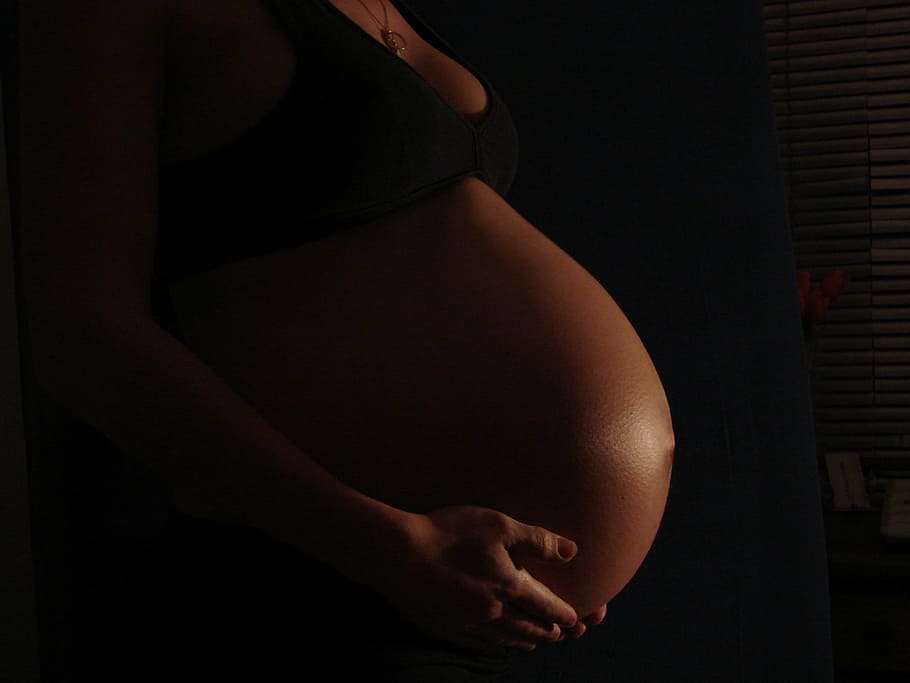Labour Inspectorate must probe allegations of pregnant women being exploited

In a Sean Douglas story published in Newsday on June 8, the first vice president of the Oilfield Workers Trade Union (OWTU) Sati Gajadhar-Innis was featured in a picture supported on one side by David Abdulah, leader of the political party the Movement for Social Justice (MSJ), which supports and is supported by the OWTU, and on the other side by the very articulate and popular vice president of OWTU, Ozzie Warwick. Her appearance was welcome.
It was welcome for a number of reasons: first because the event was focusing on maternity protection, and secondly because it featured Gajadhar-Innis, one of the labour leaders rarely seen in the national press.
It was not an OWTU function per se, it was hosted by the MSJ in preparation for the upcoming Labour Day celebration and the topic under discussion was maternity protection.
Mr Abdulah, who is a brilliant and persuasive speaker, was quoted as saying that some companies tell female workers who return to work after they have given birth that they "can reapply for their substantive positions."
He was corrected by Ms Gajadhar-Innis, who is reported by the senior and very experienced reporter Mr Douglas in the following paragraph as saying: "As Comrade Abdulah would have said, when our women get pregnant, they are sent home. When they return to the job, they either have to apply for a new position or actually have to take up some menial job instead of returning to their substantial position."
That is wrong. Why it was quoted I cannot understand. It is simply not true. In TT, women who are employed are not sent home on getting pregnant. That would be illegal and grossly unfair.
It is important that this impression be corrected. There was a time when young women in the relevant age range were denied employment if it was thought they might get pregnant soon after being hired, because of the cost to the employer of maternity leave, but that no longer happens because of the way contracts of employment are drafted, and women who intend to get pregnant can, thanks to birth control, wait until they can afford to do so.
Mr Douglas went on to report that Ms Gajadhar-Innis claimed this occurs across the board, even in big companies.

If this is true, I am grateful and appreciative that Ms Gajadhar-Innis has brought this to public attention, and trust that the Labor Inspectorate of the Ministry of Labour, whose responsibility it is to ensure that our labour laws are followed, and that women in this country are not exploited by people who employ them.
Surely after 30 years the Labour Inspectorate has a system whereby it can identify which "big companies" are breaking the law and exploiting new mothers and can take action against them?
The law reads in section 7 that: "Women employees are entitled, after 14 weeks' maternity leave, to go back and return to their substantive positions." And their pre-maternity remuneration.
It also reads: "An employee is not entitled to the rights referred to in section 7 unless as of the date of confirmation of pregnancy as certified by a qualified person, she has been continuously employed by that employer for a period of not less than 12 months. For the purpose of subsection (1) ‘Continuously employed’ in relation to a daily-rated employee means employment for an aggregate of 150 working days in a period of 12 months."
And it goes on to make it clear that: "An employee is entitled to leave of absence for the maternity leave, pay while on maternity leave, (and) to resume work after such leave on terms no less favourable than were enjoyed by her immediately prior to her leave."
Ms Gajadhar-Innis is a senior trade union executive representing the rights of women workers. Her job is to know the law.
Women do not get sent home when they get pregnant. Maternity leave is not mandatory unless, as the law says, they have been employed with the same employer for 12 months. It is only then the 13 weeks' leave should kick in.
Before 1998 there was no statutory maternity leave. When my first daughter was born, I worked that week up until the Friday, she was born Saturday, and I was back to work the Friday morning after.
Now many women who are fit choose to work up till the day before, as I did, but take the full 13 weeks they are entitled to after. I don’t know if the mistakes in the story were those of Ms Gajadhar-Innis, Mr Douglas or the editor, but pregnant women should not be misled.
Ms Gajadhar-Innis in that story is further reported claiming that a woman who does not have the required number of NIS contributions to claim maternity benefits can "borrow" some contributions from someone she lives with.
I did not know that was legal or even possible. It certainly wasn’t possible when I was having children, so in case the law has changed, I recommend that employees check with the nearest National Insurance office.

Comments
"Labour Inspectorate must probe allegations of pregnant women being exploited"